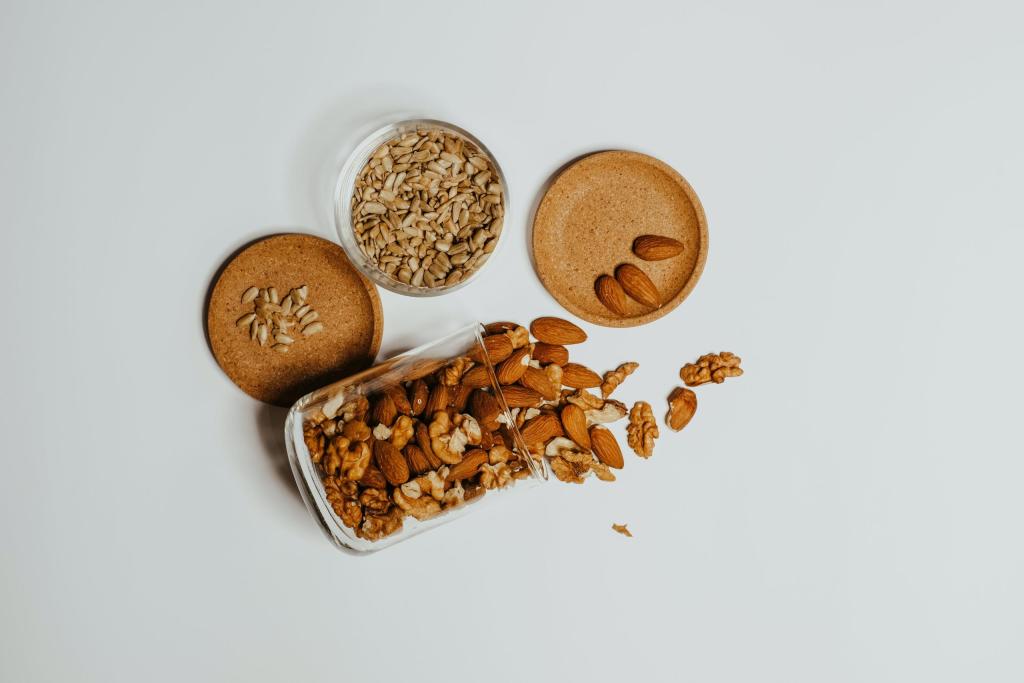
It’s a question that crosses the minds of many new mothers, “What should I eat while I’m breastfeeding?” Pregnancy introduces a list of dietary recommendations, but you still need to be mindful once your baby arrives if you are breastfeeding.
As a new mother, nutrition is key for ensuring the well-being of both you and your baby. Breastfeeding puts extra demands on your body and you need extra energy and specific nutrients to support you while you are providing nourishment to your little one.
To help guide you, here are some tips from the Grace Private team:
The first thing we want to stress is that your diet doesn’t need to be perfect! The Australian Breastfeeding Association states that your diet affects your health more than the quality of your breast milk. While breastfeeding requires more nutrients, your body uses these nutrients more efficiently and your appetite may increase.
Balancing nutrition and convenience is key. To keep energy levels up, we recommend you eat to your appetite, rather than striving for perfection, focus on maintaining a well-rounded and varied diet that includes a mix of different food groups.
Incorporate plenty of colourful vegetables and fruits to provide essential vitamins and minerals. Opt for whole grains like brown rice, quinoa, and whole wheat bread to ensure a steady supply of energy. Protein sources like lean meats, fish, eggs, nuts, and legumes should contribute to your overall nutrient intake.

Breastfeeding uses a lot of energy, so it’s essential to eat foods that provide sustained nourishment and support your body’s increased demands. Eating foods high in protein, calcium, iron, iodine, vitamin D, and various other vitamins is key.
If you’re a vegetarian, your diet can meet your needs while breastfeeding, as long as you include a variety of foods including legumes, eggs, milk, cheese and yoghurt, whole grain breads and cereals, fruits and vegetables.
To ensure you’re eating a balanced diet, vegan mothers will need to carefully plan what you eat to ensure you’re meeting the needs of your baby and your body. A dietitian can help you look at your diet and check that it contains all the nutrients you need.
To maintain a healthy diet while breastfeeding, we recommend limiting the consumption of processed food, foods high in saturated fats and foods high in sugar. While it’s fine to occasionally indulge, focus your efforts on eating a diet rich in nutrients and avoid empty calories.
What about coffee? Caffeine can transfer through your breast milk to your baby, making it advisable to minimise the consumption of excessive tea, coffee, and cola drinks.
Alcohol and other drugs can pass through breast milk and potentially impact your baby, making avoiding them altogether the safest option. Recreational drugs should always be avoided and you should check with your doctor before taking any medications.
You might feel more thirsty while you’re breastfeeding, which means you need to stay well-hydrated. Your body is working hard to produce breast milk for your baby, which can leave you thirstier than usual.
You should focus on listening to your body and listening to its cues when it comes to thirst, hydration needs to be about titrating intake to thirst and urine rather than drinking a set amount of litres.
Trust your body, it’s intuitive and will signal you when you need more fluids. Pay attention to the colour of your urine, pale yellow or straw-coloured urine often indicates you’re well-hydrated, while dark yellow urine may suggest you need to increase your fluid intake. By listening to your body and its cues you can ensure you stay well-hydrated when breastfeeding.
While many women focus on losing postpartum weight, many women lose weight too quickly while breastfeeding as it burns more calories. You may be tempted to eat more processed foods, or foods high in saturated fat and sugars to gain weight. These foods may help you gain weight but aren’t giving you the nutrients you need. Try to have more frequent, smaller meals and snack between meals. Consult your doctor or a dietician if you are concerned about your weight loss.
Some tips if you’re losing weight while breastfeeding:
Nourishing your baby and your own body while you are breastfeeding is essential. It’s always best to embrace a balanced approach to nutrition, stay hydrated and always prioritise your well-being to enhance your breastfeeding journey.
If you have specific dietary concerns or health conditions, consult with Grace Private’s dietitian who specialises in maternal and infant nutrition. At Grace Private, our Specialist Women’s Health GP Frances Knight has specialist skills in breastfeeding and neuroprotective developmental care (NDC) and provides personalised guidance tailored to your needs and circumstances.

